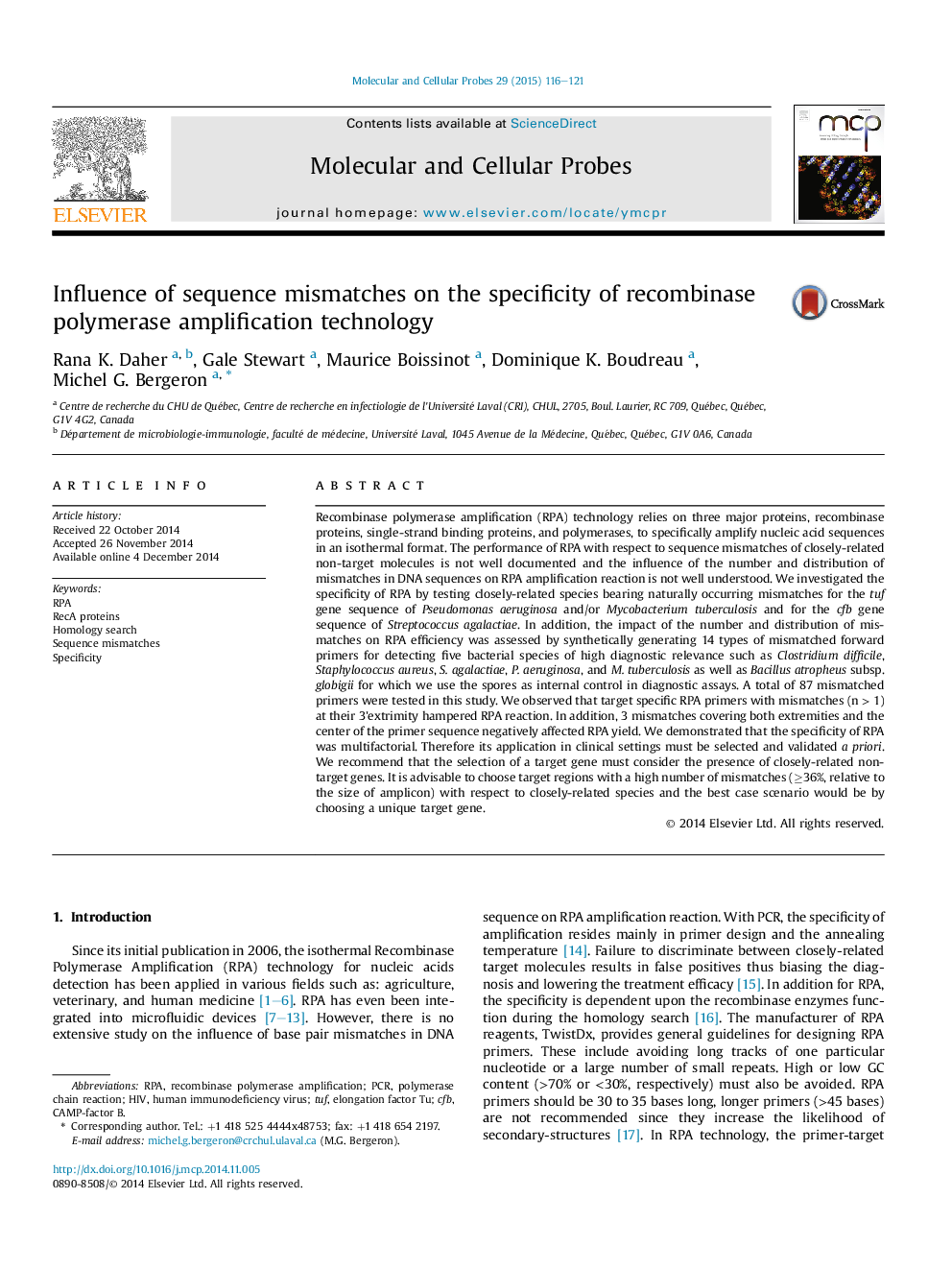| کد مقاله | کد نشریه | سال انتشار | مقاله انگلیسی | نسخه تمام متن |
|---|---|---|---|---|
| 2199666 | 1099606 | 2015 | 6 صفحه PDF | دانلود رایگان |

Recombinase polymerase amplification (RPA) technology relies on three major proteins, recombinase proteins, single-strand binding proteins, and polymerases, to specifically amplify nucleic acid sequences in an isothermal format. The performance of RPA with respect to sequence mismatches of closely-related non-target molecules is not well documented and the influence of the number and distribution of mismatches in DNA sequences on RPA amplification reaction is not well understood. We investigated the specificity of RPA by testing closely-related species bearing naturally occurring mismatches for the tuf gene sequence of Pseudomonas aeruginosa and/or Mycobacterium tuberculosis and for the cfb gene sequence of Streptococcus agalactiae. In addition, the impact of the number and distribution of mismatches on RPA efficiency was assessed by synthetically generating 14 types of mismatched forward primers for detecting five bacterial species of high diagnostic relevance such as Clostridium difficile, Staphylococcus aureus, S. agalactiae, P. aeruginosa, and M. tuberculosis as well as Bacillus atropheus subsp. globigii for which we use the spores as internal control in diagnostic assays. A total of 87 mismatched primers were tested in this study. We observed that target specific RPA primers with mismatches (n > 1) at their 3'extrimity hampered RPA reaction. In addition, 3 mismatches covering both extremities and the center of the primer sequence negatively affected RPA yield. We demonstrated that the specificity of RPA was multifactorial. Therefore its application in clinical settings must be selected and validated a priori. We recommend that the selection of a target gene must consider the presence of closely-related non-target genes. It is advisable to choose target regions with a high number of mismatches (≥36%, relative to the size of amplicon) with respect to closely-related species and the best case scenario would be by choosing a unique target gene.
Journal: Molecular and Cellular Probes - Volume 29, Issue 2, April 2015, Pages 116–121